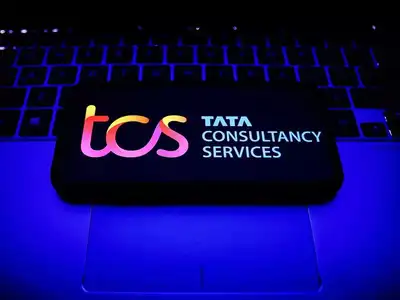Banking News – A fresh wave of job insecurity is sweeping through India as Tata Consultancy Services (TCS), the country’s largest IT services exporter and private-sector employer, has announced plans to lay off approximately 2% of its workforce over 12,000 employees over the course of this year. This move comes amid ongoing macroeconomic uncertainties and disruptions caused by rapid advancements in artificial intelligence (AI).
TCS CEO K. Krithivasan, in a recent interview, acknowledged that AI is driving productivity gains of up to 20%. However, the layoffs reflect broader trends in the global tech industry, where major companies have already slashed thousands of jobs in response to the AI shift.
While the TCS downsizing mirrors global patterns, it also casts a spotlight on India’s long-standing employment challenges. A recent Reuters poll of independent economists revealed concerns that official unemployment data significantly underrepresents the scale of joblessness and underemployment. According to the poll, the true unemployment rate may be nearly double the government’s reported figure of 5.6% for June 2025. Over 70% of the economists surveyed believe the official statistics lack accuracy.
The Indian government, however, has pushed back, questioning the methodological rigor of the Reuters report. Officials argued that the article relied heavily on expert opinion without verifiable, data-driven analysis, and lacked transparency in the selection of economists. The government maintains that official employment data remains robust, credible, and internationally accepted.
The AI Paradox: Rising Anxiety, Widening Talent Gap
India’s struggle with AI is twofold: while the technology threatens existing jobs, a severe shortage of AI-skilled professionals is also hampering growth. According to Microsoft’s Work Trend Index 2023, 74% of Indian workers fear that AI could replace them. This concern is echoed in the Economic Survey 2024–25, which warns that the pace of AI advancement could have a deeply disruptive effect on the labor market.
Despite the fears, the real issue confronting Indian tech companies is the lack of AI-trained talent. Only 15–20% of the workforce currently possesses AI-related skills. From IT giants like HCLTech to AI-focused startups such as StaqU, companies are struggling to find skilled professionals. Shefali Sharma Garg, Chief People Officer at Publicis Sapient, noted, “There just aren’t enough people in the market with AI skills. Our strategy now is to hire agile talent who can evolve as AI evolves.”
A report by Bain & Company highlights that AI-related job postings have risen 21% annually since 2019, while salaries have increased by 11%. However, the supply of skilled professionals remains far below demand. By 2027, India’s AI industry is expected to create 2.3 million jobs, yet only 1.2 million professionals may be available, leaving a significant gap.
“India has a unique opportunity to become a global AI talent hub,” said Saikat Banerjee, Partner at Bain & Company. “But by 2027, job openings are projected to be 1.5 to 2 times the available talent pool. Upskilling and reskilling are urgent priorities.”
Employment vs. Employability
India’s employment crisis is increasingly being viewed as a problem of employability rather than job availability. The Mercer Mettl India Graduate Skill Index 2025 reports that only 42.6% of job-seeking graduates are employable, with just 46.1% deemed ready for roles in AI and machine learning.
Similarly, a February 2025 study by Hero Vired and Guru Gobind Singh Indraprastha University found that 77% of Indian professionals feel they lack adequate skills in technologies their employers consider essential. Large corporations with expansion plans are now facing delays due to talent shortages. According to a 2024 report by TeamLease Degree Apprenticeship, India may face a skill deficit of 30–32 million people by the end of FY2025, escalating to 47–49 million by 2027.
Sectors most affected include automotive, healthcare, construction, textiles, pharmaceuticals, and real estate. Sunrise industries such as renewable energy, semiconductors, electric vehicles, and drone manufacturing could face a 2 million manpower shortage within two years.
In response, companies like Larsen & Toubro, Tata Motors, Shree Cement, and Lumax are investing heavily in upskilling their blue-collar workforce.
Government Initiatives and the Way Forward
To address the growing skills gap, the government introduced the Prime Minister’s Internship Scheme in 2024, mandating the top 500 companies to offer internships to 10 million youth over five years. Each intern receives a ₹5,000 monthly stipend, with companies permitted to utilize CSR funds to cover costs.
A January 2025 report by TeamLease EdTech revealed that 81% of surveyed companies support expanding the internship scheme to all corporates, citing its potential to bridge the learning-to-earning divide.
Experts argue that the commonly cited belief that AI will both displace and create jobs oversimplifies a more complex reality. “While new roles will emerge, many workers face deep socio-economic barriers to reskilling,” wrote Amit Kapoor and Mohammad Saad of the Institute for Competitiveness. “Lack of time, training access, or financial resources can make transitions nearly impossible for large parts of the workforce.”
India stands at a critical crossroads. With AI reshaping the job landscape, the country must act decisivelynot only to create jobs but also to ensure its workforce is equipped to fill them. This requires coordinated efforts from government, academia, and industry to foster a resilient, future-ready labor market that can thrive in the age of AI.



 About Us
About Us
Comment